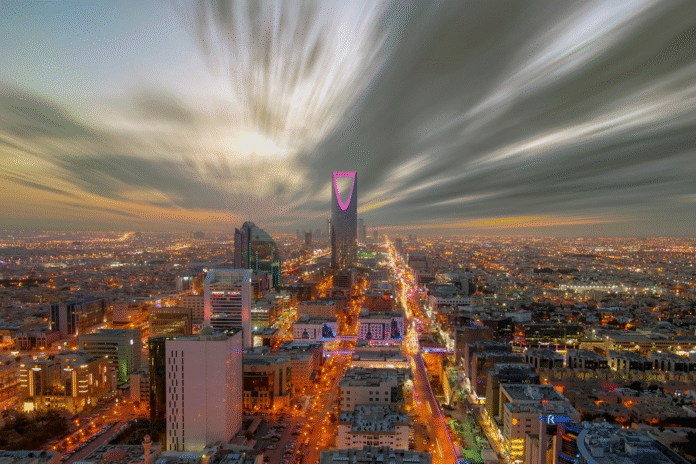Saudi Arabia has reported a remarkable achievement in its tourism sector, according to the Ministry of Tourism’s annual report for 2024. The Kingdom has officially welcomed 115.9 million tourists, a landmark number that includes both international and domestic travelers. This achievement marks a significant milestone in the country’s vision to become one of the world’s leading tourism destinations under its Vision 2030 initiative.
Tourism Growth in Saudi Arabia: A Record-Breaking YearThe latest statistics underscore the remarkable growth in Saudi Arabia’s tourism industry. In 2024, the Kingdom saw 29.7 million inbound visitors—a record high—reflecting an 8% year-on-year increase. Even more impressive is the 70% growth compared to pre-pandemic levels in 2019. The total number of tourists, both international and domestic, reached an all-time high of 115.9 million, with 86.2 million Saudis choosing to explore their own country, underscoring the growing domestic tourism market.
One of the standout trends from this surge in visitor numbers is the increase in tourist spending. International tourists spent more than in previous years, with a 19% year-on-year growth in spending, highlighting the Kingdom’s ability to attract high-spending visitors. This increase is partly attributed to longer stays, with international tourists staying an average of 19 nights, indicating that Saudi Arabia is becoming a more attractive destination for long-haul travelers.
Peak Tourism Moments: Formula 1 and Major Events Drive Growth
Saudi Arabia’s tourism growth was significantly boosted by international events, particularly the Formula 1 Saudi Arabian Grand Prix in March 2024, held at the Jeddah Corniche Circuit. This event alone contributed to an influx of 3.2 million inbound visitors, showing just how impactful major sporting and entertainment events can be in driving tourism. As Saudi Arabia continues to host world-class events, from cultural festivals to global sporting competitions, the country’s reputation as a top-tier travel destination continues to rise.
Saudi Arabia’s Global Ranking: A Leader in Tourism Growth
On the global stage, Saudi Arabia’s tourism sector has been making waves. According to UN Tourism data, Saudi Arabia ranks #1 among G20 countries for growth in international tourist arrivals and #2 globally for inbound tourist growth when comparing the period from January to November 2024 to the same period in 2019. These numbers reflect the growing appeal of the Kingdom as an international destination, outpacing many other countries in terms of tourist growth.
This success is no accident, as the Saudi government has heavily invested in infrastructure development, events, and destination marketing. These investments have not only expanded the tourism infrastructure, making it easier and more attractive for tourists to visit, but they have also enhanced the country’s appeal as a multi-faceted destination offering a diverse range of experiences.
Cultural Exchange and National Identity: Tourism’s Role in Saudi Arabia
According to Ahmed Al-Khateeb, Saudi Arabia’s Minister of Tourism, tourism plays a critical role in fostering cultural exchange, preserving the national identity, and introducing Saudi Arabia to the world. He emphasized that the Kingdom’s rich cultural heritage, deep-rooted history, and diverse landscapes are vital elements of its appeal to both international and domestic tourists. The Minister stressed that tourism in Saudi Arabia not only showcases its world-class destinations but also helps connect people from different cultures, serving as a bridge for global exchange.
In line with Saudi Arabia’s Vision 2030—which focuses on diversifying the economy, creating new job opportunities, and reducing the country’s dependency on oil—tourism is becoming one of the key sectors driving the Kingdom’s economic growth. The sector’s rise in prominence is a critical step in the broader effort to position Saudi Arabia as a leading destination in the global tourism landscape.
Saudi Arabia’s Diverse Tourism Offerings
Saudi Arabia’s success can be attributed to its diverse range of tourism offerings, catering to various types of travelers. Whether it’s cultural heritage, adventure tourism, religious tourism, or modern luxury experiences, Saudi Arabia is positioning itself as a country with something for everyone. The Kingdom boasts UNESCO World Heritage Sites, ancient ruins, vibrant cities, luxurious resorts, and sacred religious sites, all of which are drawing millions of tourists every year.
Some of the country’s most famous tourism destinations include:
- Makkah and Madinah: Home to Islam’s two holiest cities, Makkah (Mecca) and Madinah (Medina) are prime destinations for religious tourism, with millions of Muslims visiting each year for Hajj and Umrah.
- Riyadh: The capital city is known for its modern infrastructure, shopping malls, cultural centers, and historic landmarks such as Masmak Fortress and Al-Murabba Palace.
- Al-Ula: An ancient archaeological site home to stunning rock formations and the ruins of the Nabataean tombs, Al-Ula is quickly becoming one of the most sought-after destinations for cultural and adventure tourism.
- The Red Sea Coast: Known for its pristine beaches, crystal-clear waters, and vibrant marine life, the Red Sea has seen a surge in tourism, particularly for those interested in diving and marine sports.
- Jeddah: As a gateway to the holy cities of Makkah and Madinah, Jeddah is known for its beautiful coastline, historical landmarks, and as a cultural hub with museums and galleries.
Looking Ahead: Saudi Arabia’s Tourism Vision for the Future
As Saudi Arabia looks to the future, its tourism sector remains central to the Kingdom’s Vision 2030. With plans for mega-projects such as Neom—a futuristic city being built in the northwest of the country—Saudi Arabia is investing heavily in tourism infrastructure that will make it even more appealing to global travelers. The Kingdom is also focusing on sustainable tourism by incorporating eco-friendly initiatives into its development plans to ensure that its natural and cultural resources are preserved for future generations.
Additionally, Saudi Arabia has set a goal to increase the contribution of tourism to its GDP and create new job opportunities for its citizens, particularly in the hospitality, entertainment, and tourism sectors. These efforts are helping to position the Kingdom as a leader in global tourism, with a growing emphasis on cultural exchange, world-class events, and diverse travel experiences.
The Role of Digitalization in Saudi Tourism
Digital innovation is also playing a significant role in the Kingdom’s tourism sector. With the rise of smart cities, digital platforms, and e-commerce, Saudi Arabia is ensuring that travelers have easy access to information, bookings, and services. The Ministry of Tourism is investing in technology-driven solutions, such as mobile apps and online travel services, to streamline the visitor experience.
Moreover, the Kingdom has launched campaigns like #SaudiTourism to promote tourism through social media, helping to boost visibility and engage a younger, tech-savvy audience eager to explore new destinations. Through these digital initiatives, Saudi Arabia is making it easier for travelers to plan their trips and enjoy their stay in the Kingdom.
Conclusion: Saudi Arabia’s Tourism Future is Bright
In conclusion, Saudi Arabia’s tourism sector has experienced unprecedented growth in 2024, and the future looks even brighter. With a strong foundation of investment in infrastructure, events, and destination development, the Kingdom is poised to become one of the world’s top tourism destinations. Saudi Arabia’s diverse offerings, combined with a focus on sustainable tourism and cultural exchange, position the Kingdom as a place where visitors can experience both ancient traditions and modern luxury. As the Kingdom continues to align with its Vision 2030, its tourism industry will undoubtedly play a pivotal role in diversifying the economy, creating jobs, and contributing to the Kingdom’s rise on the global stage.











